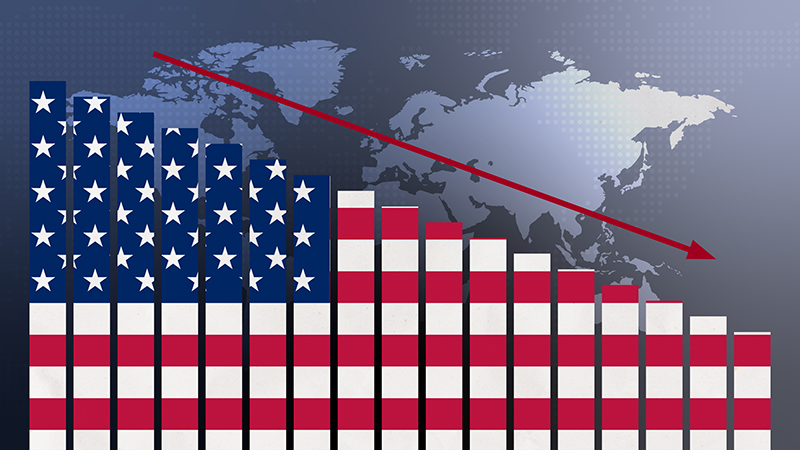However, are such products still worth buying now, with credit spreads having sunk below their long-time average?
Credit Suisse launched its first fixed maturity fund at the end of 2015, followed by another one in April last year.
The latter fund mainly invests in bonds issued by emerging market companies and has “a weighted average investment-grade exposure”. It has been particularly successful, seeing net inflows in excess of €3bn.
“Fixed maturity bond funds have worked extremely well for us. I have been actively recommending them to my clients,” said Omar Gadsby, head of fixed income fund selection at Credit Suisse’s private banking division.
The bulk of the €3bn committed to the Credit Suisse Fixed Maturity Bond Fund 2019 indeed came from internal clients.

Early 2016 was a perfect time to launch a fixed maturity bond fund, explained Gadsby. “Credit spreads were very attractive back then.”
But that’s no longer the case: the US high yield bond spread, for example, has narrowed from more than 800bps in February 2016 to less than 400bps now. And emerging market (corporate) debt spreads have been on a similar trajectory.
For this reason, it doesn’t really make sense to invest in fixed maturity funds at this moment, said Jaap Bouma, senior portfolio manager at the Dutch wealth manager Optimix.
“Spreads are now below the five-year average,” said Gadsby. “The spread of the JP Morgan EMBI Index has narrowed from 538bps in February 2016 to 329 points now. Valuations are starting to raise some questions.”
“In principle, such strategies are interesting, but why would we lock in yields at such low levels? In these circumstances, with risk-free rates and credit spreads both at very low levels, active management is the way to go,” he said.
“Just last month we halved our position in US high yield bonds in favour of a volatility arbitrage fund. I consider fixed maturity products more of a buy-and-hold product, and that’s just not an interesting proposition right now.”
But the fixed maturity fund launches just keep coming. Gadsby is planning one in April, again focusing on emerging market debt, and AXA IM just launched another European high-yield fixed maturity fund.
The fund, which launched only a couple of weeks ago, has seen inflows of €29m so far, says its manager, Yves Berger.
That may look like small beer compared to the flows attracted by the aforementioned Credit Suisse fund, but a similar fund launched by Berger last year racked in close to €700m, according to Morningstar data.
And he disputes Bouma’s notion that fixed maturity funds are more or less buy-and-hold strategies.
“It’s a high-yield fund, and you need to actively manage that. In fact, in the fixed maturity high-yield fund I have been managing since last year I have been trading a lot.
“The market has been driven by refinancing, with companies trying to profit from interest rates being at such low levels,” he explained.
Therefore, charging an active fee is justified, Berger contends. The ongoing charge for the institutional share class of the Axa IM Maturity 2023 fund stands at 1.29%, compared to 1.47% for Axa’s European high-yield bond fund, which is also managed by Berger.
The 1.29% fee compares to just 0.7% for the Credit Suisse fund. That’s quite a gap, and it will take some outstanding management skills to make up for that.
This leaves the question why investors would actually consider to invest in a fixed maturity fund now. Since spreads are now below the long-term average, wouldn’t it make sense to wait until they are a bit wider?
Though investors should not expect a similar return as those who invested in Credit Suisse’s previous fixed maturity fund (it returned 8.3% since inception), Gadsby suggests fixed maturity funds now present an excellent opportunity for investors to take profits after spread compression over the past year.
He explains: “In emerging market debt, spreads have narrowed by 200bps. The duration of the index is seven years, so this means a capital gain of 14%. Investors can take this profit and rebalance into a more defensive structure. That’s why we’re launching such a fund at the end of April.”
Whether now is the right time to invest in a fixed maturity fund basically depends on where you’re coming from. Considering it’s the bond issuers who are currently looking to lock in low yield by refinancing bonds, as observed by Axa’s Berger, it’s probably not the right time if you are looking for an attractive coupon. You’d probably better wait a bit.
But if your purpose is to reduce risk and take some profits, it may well be the right product now.
What is certain though, is that fixed maturity products are not just a flash in the pan. They are especially appealing to ageing baby boomers who have a relatively short investment horizon, and are here to stay.
“If there’s one huge observation to make since the financial crisis, it’s that outcome-oriented investments are a real trend,” Gadsby concluded.











